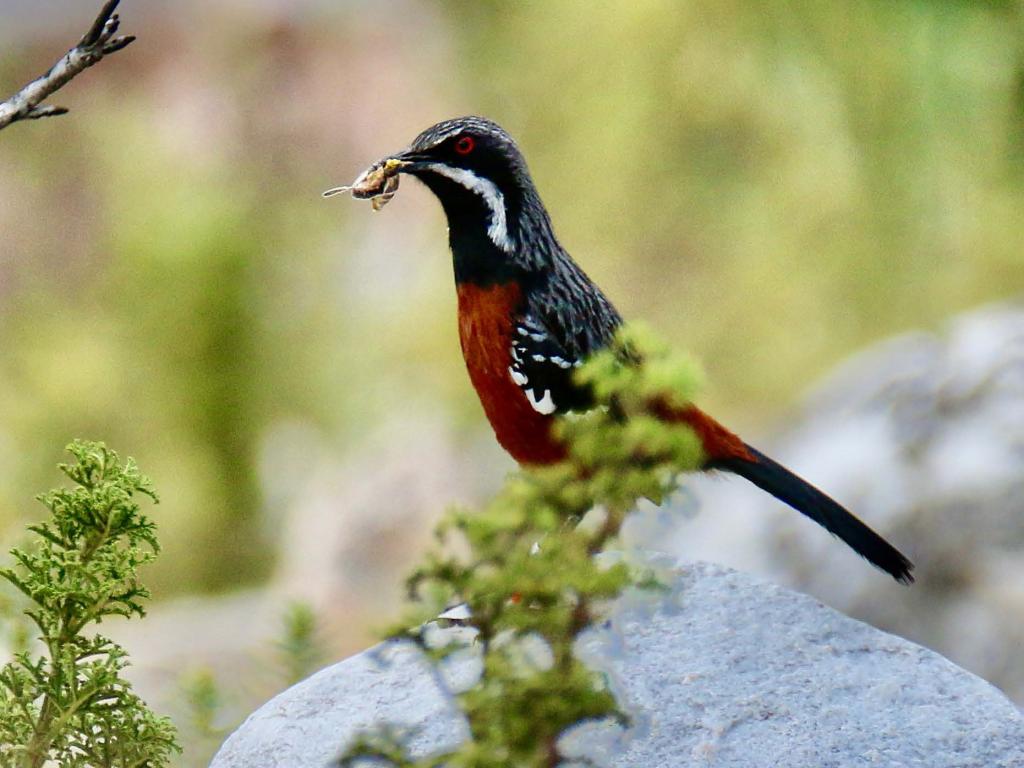New paper: The impacts of high temperatures on rockjumper chicks

Cape Rockjumpers (Chaetops frenatus) are very well suited to the temperate Mediterranean climate of the mountain fynbos, and have been there for a long time. Recently, their reporting rates have been decreasing, and this seems to be linked to increasing temperatures. This study, by Krista Oswald, Alan Lee, Ceili Peng, Cameryn Brock, Ben Smit, and Susan Cunningham, from the FitzPatrick Institute of African Ornithology at UCT, Rhodes University, UKZN, MIT, and UC Santa Barbara, tackled the question of whether the decrease in Cape Rockjumper numbers could be related to changes in adult behaviour at the nest.
Here they found that nestlings gained less mass on warmer days above surprisingly low temperature thresholds (< 25 °C) and parental provisioning decreased steadily at increasing temperatures. This suggests that Rockjumper parents may be unable to meet their nestlings' needs on days with higher temperatures, perhaps because nestling energy or water demands in order to thermoregulate are elevated on hot days. It may also be that adults are not only provisioning less on hot days, but are also finding smaller prey items.
While they found no direct evidence of a change in fledging success, smaller nestlings likely have lower post-fledging survival. This research supports the idea that climate change affects species persistence, often through complex effects. The research is published in the Journal of Avian Biology.
Oswald, K.N., Smit, B., Lee, A.T., Peng, C.L., Brock, C. and Cunningham, S.J. 2021. Higher temperatures are associated with reduced nestling body condition in a range‐restricted mountain bird. Journal of Avian Biology. https://doi.org/10.1111/jav.02756
